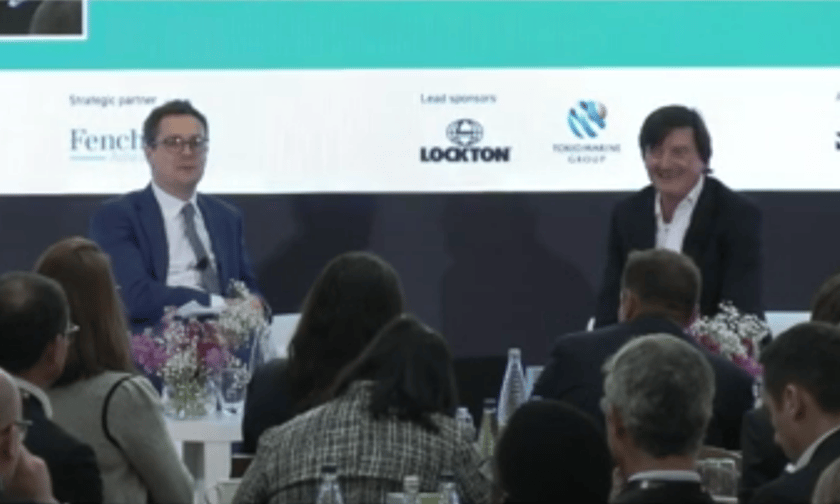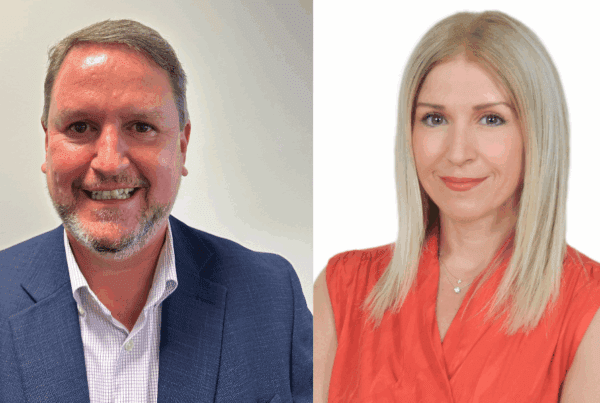“When the time is right, we will enter the US”

Delivering a keynote address at the Financial Times Global Insurance Summit, the CEO and founder noted that he started his insurance career in the 1980s, at a time of massive consolidation in the market. He affirmed his belief in entrepreneurialism as the key to driving the country – and the City of London forward – and cited Howden’s employee ownership model, which has seen some 5,000 employees become equity holders in the business, as an example of this.
Howden’s rapid geographic and operational expansion has generated significant headlines and conversations, especially in recent years, and the question on the minds of many in the market is where the group goes next as it approaches its 30th anniversary in November.
“The question I’m often asked is when we’re going to go into the US,” he said. “We’re building a global broker and 50% of insurance premiums are in the US, roughly. We’ve always said that when the time is right, we will enter the US.”
As to how Howden would look to enter the US, he noted that the business would take the same approach that has worked so well for it everywhere else it has expanded around the world. If you look at the 55 countries around the world where it operates, it’s clear that the group doesn’t take an “Englishmen in raincoats being expats” approach, he said, but rather looks to establish teams led and run by locals. That’s the key to creating strong local businesses able to serve the needs of their communities, backed by global expertise and the power of collaboration.
How is competition in the insurance industry faring?
Offering his take on the competition dynamics now at play within the insurance industry, Howden emphasised that no matter the industry, competition is required. Clients want alternatives, he said, whether that’s insurance clients wanting reinsurance, or direct clients. Howden is growing organically at a rate of 16%, while its reinsurance businesses are growing organically at a rate of 28% which suggests that the business is fulfilling a need in the market.
What’s challenging insurance brokers today?
Serving such a broad swathe of the market offers Howden and his team a clear overview of the most pressing challenges facing insurance brokers today – and he highlighted the importance of always taking a client-centric lens to assess those challenges.
“When I’m with CEOs, I’m not talking about insurance, I’m talking about how we can help you build your business,” he said. “Insurance has always been there to help people build their businesses. Go right back to when ships sailed across the seas, and we had electrification and steam – we’re there to support industry.
“Now, if you’ve got geopolitical change going on, our role is to say, ‘Okay, what do these guys need taken off their balance sheet? Where can we take those risks off, and allow them to continue to trade?’ Banks take financial risks, we take the other risks.”
He pointed to the work done by Howden to launch a first-of-its-kind Red Sea cargo war risk facility, which looks to protect ships and strengthen global supply chains as an example of how the industry can work to craft great client outcomes. The insurance industry needs to step up to reduce or remove the real risks worrying clients today, he said, because that’s the job of the industry, not just to sell its existing products.
Bridging the protection gap facing the market
Outlining the protection gap that is being created by insurers and reinsurers pulling back from covering certain risks, he noted the growing gulf in the global south between insured versus non-insured assets. He re-echoed his call for the industry not to sleepwalk towards irrelevance. In order to prevent that, the industry needs to think about how it can become as relevant as possible for clients and the big risks that they’re facing.
From geopolitical turbulence to the impact of climate change, to the spectre of cyber, in order to be relevant to clients when helping them mitigate these concerns, two things need to happen. The first, he said, is the industry needs to encourage more product innovation and the second is the need for new capital in the market.
“And we’re not attracting that much new capital at the moment,” he said. “If you think about it, we’ve had the hardest market I’ve known and I’ve been in this business 40-odd years. And yet how much really new capital has really come in? Not a lot. Some of the challenges there are about how much they trust us to give them the return they need though we had good results last year. [So], I think you need innovation and you need capital.”
Related Stories
Keep up with the latest news and events
Join our mailing list, it’s free!




